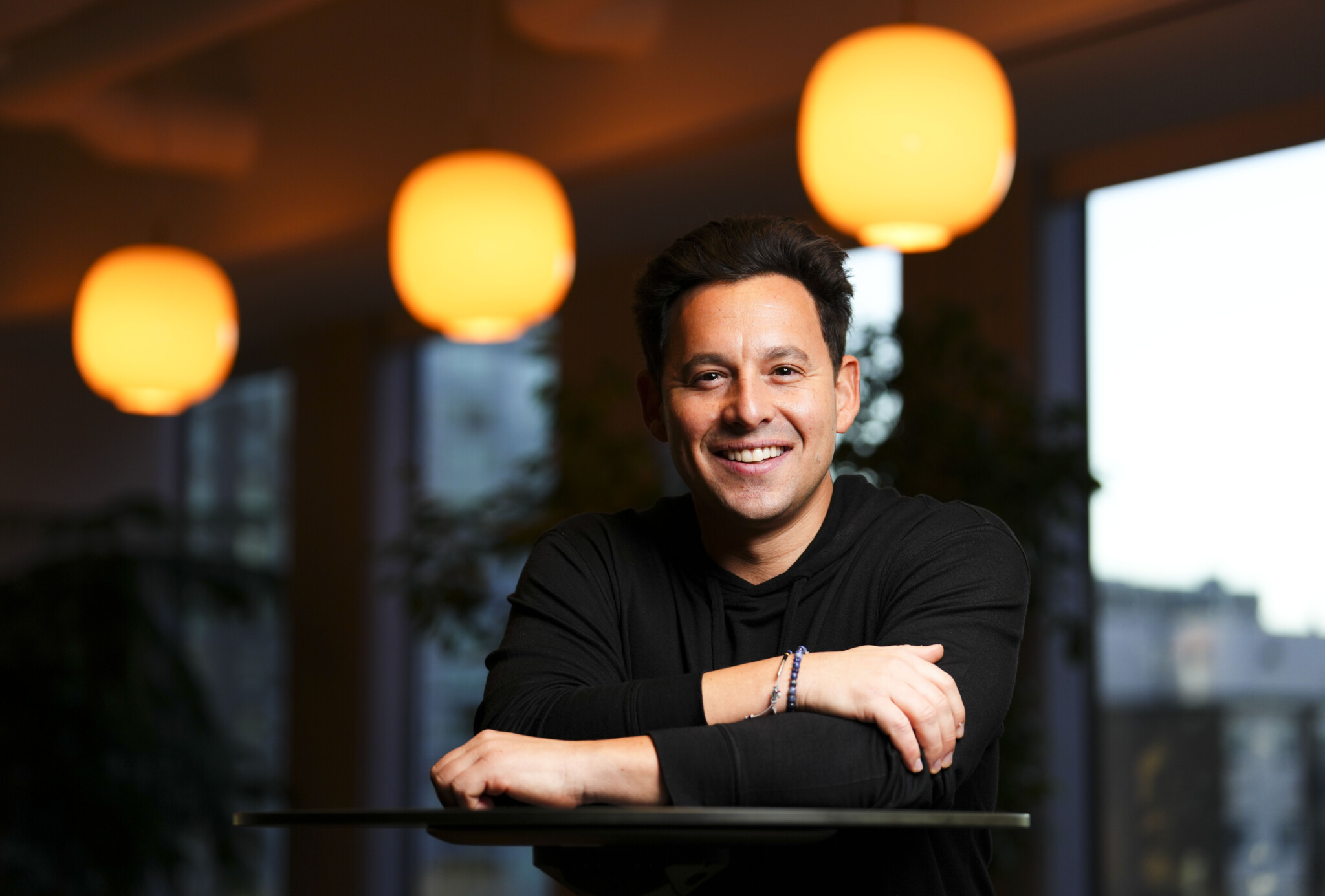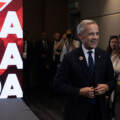The president of Canada’s largest and most successful tech company believes the country has what it takes to become a global entrepreneurship powerhouse—but only if it removes barriers and changes its narrative around business success.
Harley Finkelstein, president of Shopify, has watched his company grow from an Ottawa startup to one of Canada’s largest corporations by market cap. Shopify is an e-commerce company that provides businesses with an online platform to create, manage, and scale their stores, including tools for payments, shipping, marketing, and analytics.
Now, Finkelstein is advocating for Canada to embrace what he calls becoming a “founder nation”—a country that encourages entrepreneurship with incentives, and celebrates business builders. The Hub’s Sean Speer spoke with Finkelstein to better understand his vision for transforming Canada’s entrepreneurial landscape.
Here are four key takeaways from the conversation:
1. Canada needs to modernize its business infrastructure and reduce bureaucratic friction: Current regulations were designed for the 20th century and create unnecessary barriers for modern entrepreneurs.
2. The country must change its narrative from celebrating business failures to highlighting entrepreneurial success stories: Canada’s tendency toward “tall poppy syndrome” undermines confidence and ambition among potential founders.
3. Geographic advantages and talent pools give Canadian entrepreneurs unique competitive benefits: Building outside major tech hubs like Silicon Valley allows access to top talent without intense competition.
4. Entrepreneurship education should be embedded in the school system from elementary grades forward: Teaching business skills early creates a culture where starting companies is seen as a normal career path.
Canada needs to modernize its business infrastructure
Finkelstein argues that many of Canada’s business regulations were created for a different era and now create unnecessary friction for entrepreneurs trying to compete globally. He envisions reforms like 48-hour company incorporation, harmonized registrations across provinces, and streamlined tax systems.
“I think Canada’s rules in many cases were created for the 20th century,” Finkelstein said. “And as you think about operating at a global level, competing with the best companies in the world, it does feel like we have to update our playbook.”
He points to the Scientific Research and Experimental Development (SRED) tax credit as an example of good intentions undermined by poor execution. While the program provides $5 billion annually to support R&D, 80 percent of applicants hire consultants who typically take 20-30 percent commission due to the complexity of the forms, he explained. “The fact that there is this barrier that requires you to hire a third party to fill out the form for you should tell us that there’s way too much friction there,” he noted.
“Government support must move as fast as founders do,” he emphasized. “Agile, responsive, focused on outcomes.” When programs require expensive consultants to navigate, it signals that the system needs fundamental reform rather than incremental improvements.
The country must change its narrative around business success
One of Finkelstein’s strongest criticisms involves how Canada talks about its business successes and failures. He argues that the country’s focus on the downfall of companies like BlackBerry and Nortel, rather than celebrating their global impact and innovation, creates a cautionary tale mentality that discourages entrepreneurship.
“I don’t think there’s a single book written in Canada or maybe in the world about these companies—of how RIM was effectively the innovation behind the idea of the smartphone and what Nortel did for telecommunications,” Finkelstein observed. “But there’s certainly a feeling that at a certain threshold, there’s nothing you can do that’s going to be well received.”
He contrasts this with other countries that celebrate risk-taking and results, even when ventures don’t end as planned. The “tall poppy syndrome” common in Commonwealth countries—wanting people to grow but not too big—needs to be replaced with a culture that makes Canadian companies “impossible to miss” through coordinated storytelling and brand building.
Geographic advantages provide competitive benefits
Despite conventional wisdom that tech companies need to be in Silicon Valley, Finkelstein argues that growing in Canadian cities provides significant advantages. Companies in smaller markets can attract top talent without competing against every major tech giant for the same people.
“If you are building a company in Montreal or Ottawa or Vancouver or Halifax…you have your pick of the smartest people, the most ambitious people, the hardest working people in that area,” he explained. “The top 1 percent of engineers or salespeople, or marketers, or product people, or designers in Halifax are as good as the top 1 percent of those people in the valley.”
This geographic advantage extends beyond talent acquisition to cost of living and lifestyle benefits. Finkelstein emphasizes that while costs have risen, Canadian cities still offer more affordable living than major U.S. tech hubs, along with strong public schools and health-care systems.
Entrepreneurship should be taught in classrooms
Finkelstein advocates for sprinkling entrepreneurship literacy throughout the education system, starting in elementary school. To make his point wrote a children’s book called We Can Be Entrepreneurs after discovering that his daughters’ Montreal schools listed various professions kids could aspire to, including magician, but not entrepreneur.
“The number one predictor of someone who’s going to become an entrepreneur is do they know other entrepreneurs?” he said. Early exposure through education and storytelling helps normalize entrepreneurship as a career path rather than something people do when they can’t find traditional employment.
He points to examples like his daughter’s school project, where third-graders grow basil, make pesto, brand it, and sell it door-to-door as models for hands-on business education. These experiences, he says, teach the fundamentals of vertical integration and value creation while generating real revenue for school programs.
Finkelstein believes Canada has all the ingredients to become a leading “founder nation”—strong universities, diverse talent, collaborative culture, and a global reputation. The missing piece is removing friction and changing mindsets to make entrepreneurship the celebrated, default path for ambitious Canadians, rather than an alternative to traditional employment.
“I think by 2050, Canadian ambition and creativity could be as world famous as our minerals and our oils are today,” he concluded. “The choice is absolutely ours.”
This commentary draws on a Hub podcast. It was edited using AI. Full program here.










Comments (0)